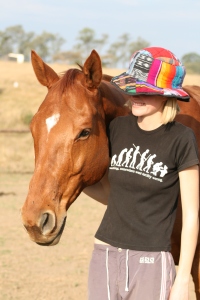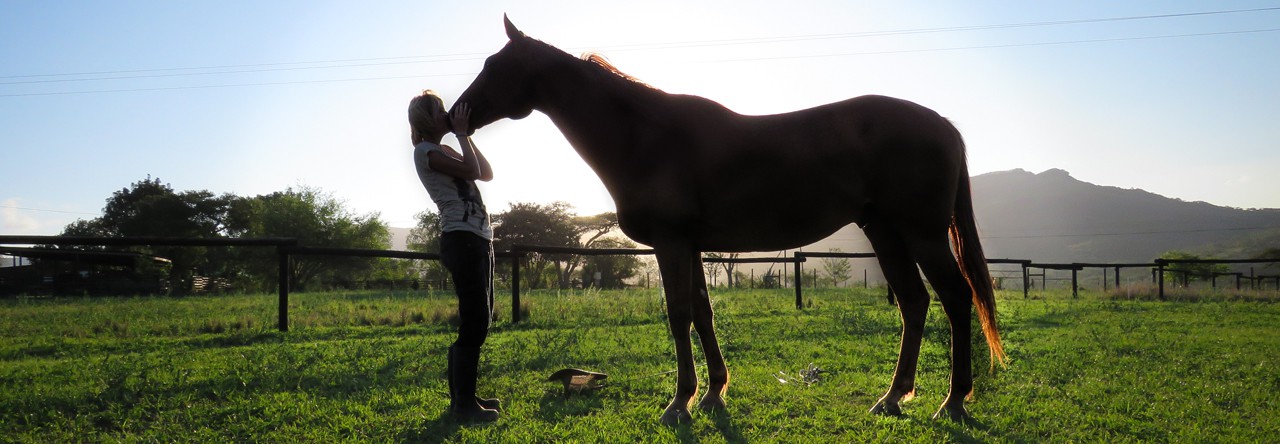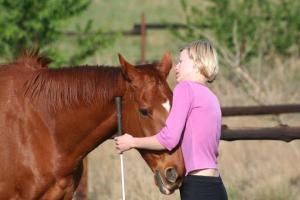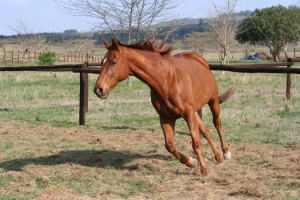During torture, it is often not the pain that breaks someone. It is the despair within knowing that no matter what you do, there is no escaping the pain and inevitability of the next assault on your body and mind. It is the same for those horses that are physically forced into compliance using pain.
Allow me to paint you a picture: Have you ever heard of school ponies who have “dull” or “dead” eyes, who have lost the spark of life? An average and somewhat typical pony arrives at a riding school. It is routinely subjected to random and harsh aids from children who have no concept of the position of power and control they have over this little pony. Day in and day out kids are yanking on the reins, with no particular purpose in mind a lot of the time. The children are unable to clearly communicate what they want to the pony, and often resort to kicking repeatedly, using a whip repeatedly, or banging on the pony’s mouth with the reins. No matter what the pony does this treatment continues. The pony is not confrontational and so does not respond aggressively to the affronts on its body. As this life continues, the pony resigns itself to the inescapable nature of the inevitable – that no matter what it does, it will be abused by these children (who, to be fair, simply do not know any better).
This is a common occurrence in the typical riding yard. Some instructors simply do not take the horse into consideration when teaching exuberant children who as yet lack the physical awareness to recognise the pain they cause.
An even more egregious abuse of the horse happens with techniques meant to “break” the horse, such as tying up their limbs, rendering them physically unable to move. The “philosophy” behind this type of approach is to exert a complete control over the horse’s body, following which MOST horses will give up entirely and simply allow anything to be done to them. A small percentage of horses will continue fighting, tooth and hoof, until the very end (which often is a very final end for the horse).
So why am I writing all this awful stuff about how badly horses are treated? Surely this is not news to anyone. I decided to write this post after reading this article: http://horsesciencehorsesense.com/index.php/learned-helplessness/
As horrible and extreme as all of the above is, the reality is that most of us (myself included!) have, or are still, applied some degree of these approaches with our horses. Our mentality is “Do what I say or else.” There is still that part of us that wants to resort to force, dominance, and control in order to achieve the result we want from our horses.
Let’s face it – the society we live in does not honour things like communication, respect, consideration, patience. We are taught by our parents, teachers, bosses – to obey “or else!” It’s no wonder that we bring this mentality with us into other parts of our lives.
As with all things, awareness is the first step to change. We must acknowledge to ourselves that we are in fact allowing certain types of opinions, beliefs, perceptions, philosophies within ourselves, and that these things have a direct effect on how we interact with all the beings and things in our lives. Once we start seeing when, where, and how we are manifesting these internal states onto the world around us, we can start planning how we can do things differently instead. We must will ourselves into changing that which we do not want to continue living any longer. Sometimes our force of habit is difficult to change – in these moments we must FORCE ourselves to change anyway, so that we can create ourselves to be the people and horsepeople we know we can be, someone we can be proud of.


 e often impose our personal interpretations onto the world around us – this can be seen especially in our relationships with animals. Animals are unable to speak for themselves using our method of communication (words) and so must rely on their behaviour to try to communicate. We, though, have the tendency to completely ignore their behaviour and place our own interpretation of the situation onto them.
e often impose our personal interpretations onto the world around us – this can be seen especially in our relationships with animals. Animals are unable to speak for themselves using our method of communication (words) and so must rely on their behaviour to try to communicate. We, though, have the tendency to completely ignore their behaviour and place our own interpretation of the situation onto them.